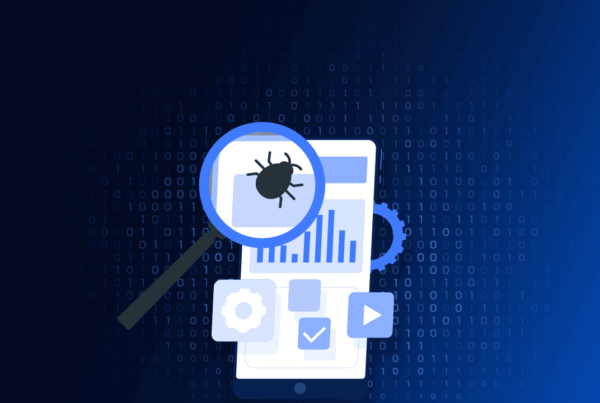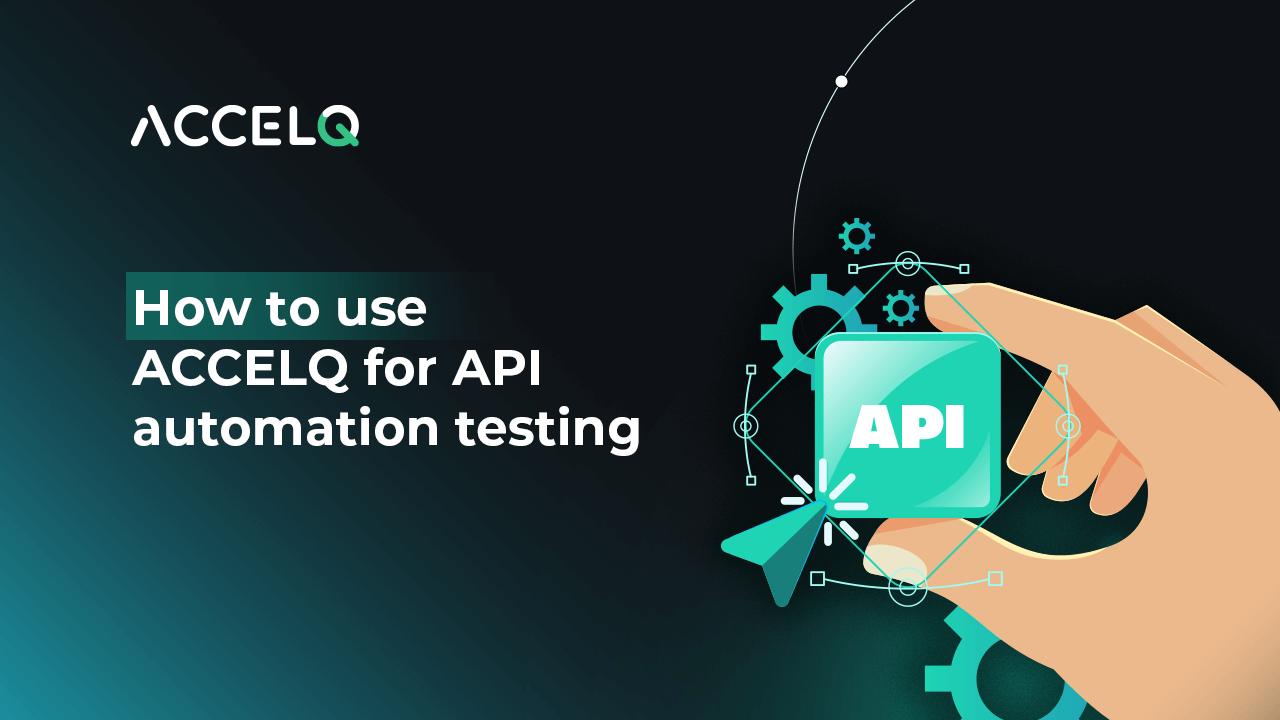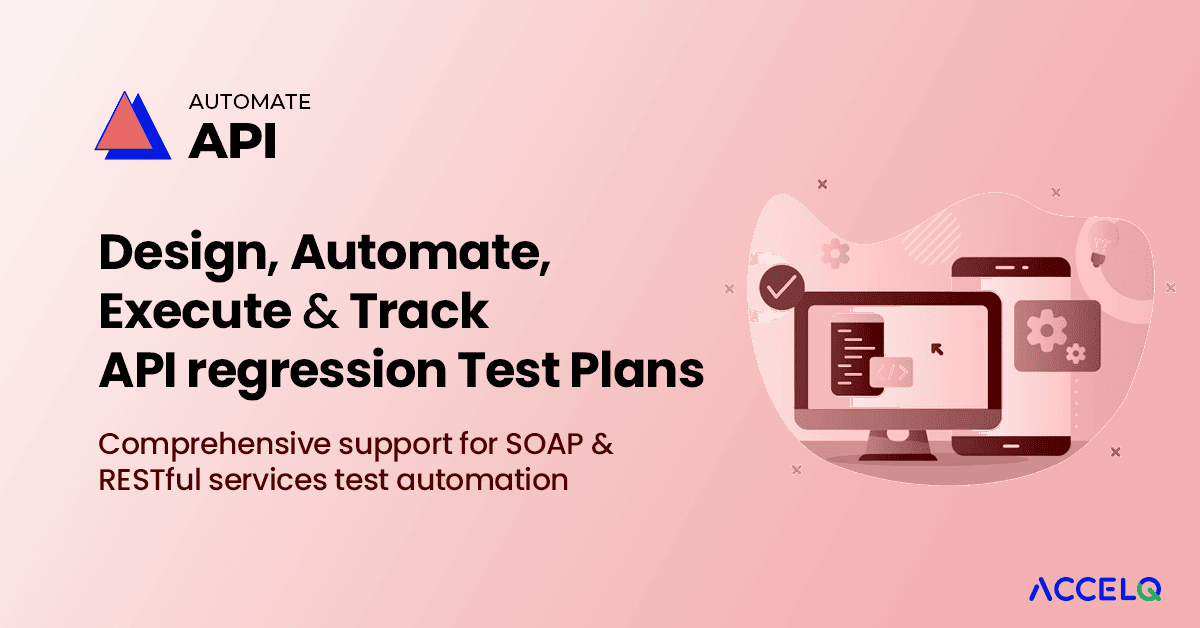Unlock the Power of API Automation Testing with ACCELQ

Automating API testing offers significant advantages, from early bug detection to increased reusability of test cases and reduced human errors. In the long run, it saves both time and resources by allowing faster development of strong API products. In this blog, we will look at the basics of API testing—what it is, its advantages, how to do API tests effectively, and most importantly, why ACCELQ is a game-changer here.
Understanding APIs
APIs—Application Programming Interfaces—are behind-the-scenes enablers that allow different software applications to interact. When you log in to an app, for example, the API sends your login credentials to the backend system and brings back a response, which is shown on your screen.
Types of APIs
1. RESTful APIs
RESTful APIs utilize HTTP methods (GET, POST, PUT, DELETE) to communicate with servers. They are super accessible, great for modern web apps, and easy to work with regarding fetching data and triggering communication.
Example: When ordering food via a delivery app, RESTful APIs enable you to retrieve restaurant menus and send your order to the backend system.
2. SOAP APIs
SOAP (Simple Object Access Protocol) APIs communicates in XML and are strongly secured for use cases such as financial applications or enterprise-grade applications.
Analogy: Just like RESTful APIs are librarians fetching books, SOAP APIs are bank vaults (secure, reliable but harder to access).
What is API Automation Testing?
API automation testing verifies the functionalities, performance, and security of APIs to ensure that they work as designed. By testing an application at a very early development stage, you can avoid costly delays and code reworks by identifying issues during the initial phases of the development lifecycle.
Key Objectives of API Automation Testing:
- Verify API functionality and response accuracy.
- Ensure smooth integration of APIs with other system components.
- Improve testing efficiency and provide faster feedback.
- Enhance test coverage and reduce manual effort.
In Agile development environments, API automation testing is preferred over GUI testing due to its faster execution and ability to detect critical bugs early. Integration with CI/CD pipelines further ensures that testing becomes a continuous process, enabling quicker, error-free releases.
Benefits of API Test Automation:
Automating API testing delivers numerous benefits, including:
- Speed and Cost Efficiency: Automation requires less coding and accelerates testing cycles, reducing costs in the long run.
- Early Bug Detection: This enables developers to identify and fix errors before the UI is developed.
- Greater Accuracy: Automated tests run more frequently and consistently than manual testing.
- Wider Test Coverage: Covers more functionality and scenarios than manual tests.
- Seamless Integration: Easily integrates with DevOps pipelines to ensure continuous testing.
- Enhanced Quality: Maintains high testing standards, even under extreme conditions.
How to perform API Test Automation?
Here’s a step-by-step guide to effective API test automation:
- Choose the Right Tool: Pick an API testing tool that fulfills your needs (Postman, SoapUI, ACCELQ)
- Understand API Documentation: Know endpoints, request method (GET, POST, etc), and response you can expect
- Create Test Cases: Cover positive, negative, and edge-case scenarios to ensure thorough validation.
- Execute Test Cases: Use the selected tool to send requests and validate responses against expected outcomes.
- Integrate with CI/CD Pipelines: Automate test execution whenever there are changes to the API.
- Analyze Results: Identify failures or issues and report them to the development team for quick resolution.
How to use ACCELQ for API Automation Testing?
ACCELQ stands out as a cloud-based testing platform that offers a no-code, design-first approach for both API and UI testing. Here’s how ACCELQ simplifies API test automation:
- Comprehensive Technology Stack: Supports the latest web technologies, databases, messaging queues, and mainframe systems.
- Unified Automation: Achieves seamless integration of API and UI testing, providing end-to-end coverage.
- Easy Test Case Creation: Configures API tests for endpoints, headers, parameters, and responses with just a few clicks.
- Native DevOps Integration: Works effortlessly with tools like Jira, Bamboo, and CI/CD pipelines.
- Enhanced Security: Supports Single Sign-On (SSO) and other enterprise-grade security features.
ACCELQ’s support for SOAP and RESTful services, messaging services (like Apache Active MQ and TIBCO), and database testing ensures robust backend validation.
Why Choose ACCELQ for API Test Automation?
Here’s what makes ACCELQ a preferred choice for API testing:
- Codeless Cloud-Based Automation: Simplifies test creation and maintenance, even for non-technical users.
- Integration Across Technology Stacks: Offers unified testing for APIs, UI, and backend systems.
- Regression-Ready Automation: Facilitates continuous improvement through built-in regression testing capabilities.
- Business Process Correlation: Links business processes with corresponding APIs for better traceability.
It leverages its unique combination of API & UI testing with powerful regression features, enabling higher-quality coverage.
Conclusion
With the vast interconnected nature of software applications today, automated API testing is not a nice-to-have—it has become an absolute must-have in this API-first development world. It speeds up the application's development, reduces bugs, and gives it a quality release.
ACCELQ is a leader in the API testing space, considering that it offers the best codeless automation while combining UI and API testing. For a solid platform place to multiply your testing, ACCELQ is the head!
Take a demo today and witness the future of API automation testing in action.
Discover More
 Making Test Automation efficient with Data-driven Testing
Making Test Automation efficient with Data-driven Testing
Making Test Automation efficient with Data-driven Testing
 Top 5 Selenium Alternatives For Automation Testing In 2025
Top 5 Selenium Alternatives For Automation Testing In 2025


































